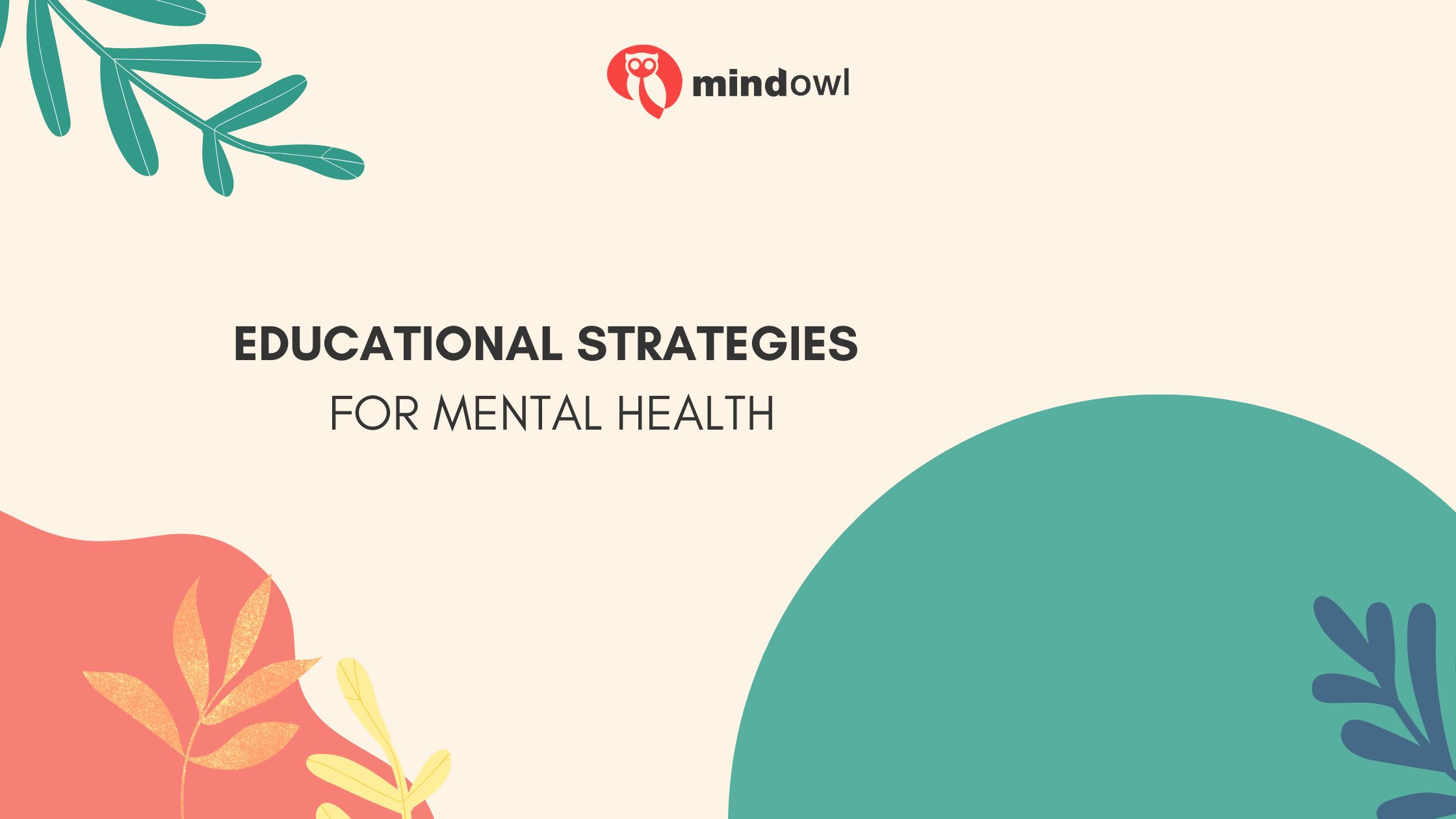In today’s fast-paced world, talking about mental health is becoming more and more important. When we have to deal with the stresses of daily life and other problems and unknowns, it can be hard on our mental health. That’s why it’s so important to come up with successful mental health education programs that focus on building coping skills and emotional strength. These techniques can help people handle tough scenarios, deal with worry, and keep an upbeat attitude. In this piece, we’ll look at a variety of teaching methods that can help improve mental health and build emotional strength.
Understanding How Education and Mental Health Are Related
Education is a key part of our general health, which includes our mental health. By teaching people about mental health and giving them skills in that area, we can help them understand and control their own feelings. Education about mental health can help people become more self-aware, more empathetic, and better able to ask for help when they need it. It can also help lower the shame around mental health problems, making the world a more welcoming and helpful place.

Putting education about mental health into schools and other places
Schools and other educational organizations are one of the most important places where mental health teaching can have a big effect. By putting mental health education into the curriculum, we can reach a lot of young people and give them the tools they need to build coping skills and emotional strength. Self-care, dealing with worry, and controlling emotions can be taught in a variety of classes. This promotes an all-around approach to education.
When students face difficulties in their studies, it’s natural for them to feel worried and experience high levels of stress. This prolonged stress can have a detrimental effect on their mental well-being. However, it’s important for students to remember that they don’t have to face these challenges alone. In times of great stress, they can seek assistance from specialized services that provide help with learning, alleviating their concerns and promoting a healthier mental state.
One such service is Studyclerk, which offers a wide range of academic support. Whether it’s tackling challenging assignments, meeting deadlines, or overcoming learning obstacles, Studyclerk provides a reliable solution. Students can rely on the expertise of professionals who can swiftly and effectively handle their academic tasks. By availing the do my assignment services, students can alleviate their stress, regain their focus, and achieve better academic outcomes, all while maintaining a more balanced and healthy state of mind.
Developing skills to deal with stress for mental health
Coping skills are the methods and techniques that people use to deal with stress, problems, and difficult feelings. These skills are very important for keeping your mind healthy and helping you stay strong. By learning how to deal with tough events, people can handle them better, lessen the effects of worry, and improve their general mental health.
Creating healthy ways to deal with stress
Seeking Help: It’s important to encourage people to ask for help when they’re having trouble. Seeking help, whether it’s from a trusted friend, family member, or mental health professional, can give you important insights, direction, and a feeling of being understood.
Mindfulness means being fully present in the moment and watching your own thoughts and feelings without judging them. By practicing mindfulness, people can become more self-aware and develop a more upbeat and accepting outlook on life.
Physical exercise: Regular physical activity has been shown to have many positive effects on mental health. Endorphins are natural mood boosts that are made when you exercise. They can help relieve worry and anxiety.
Using creative outlets: Painting, writing, or playing an instrument are all creative activities that can help you express yourself and relieve stress. People can deal with their feelings in a healthy and useful way by using these tools.
Learn what emotional resilience is and why it’s important
Emotional resilience is the ability to deal with hard times, worry, and stressful events and come back stronger than before. It means keeping an upbeat attitude, dealing with problems in a healthy way, and using support networks. Building emotional strength is important if you want to keep your mental health and well-being in spite of the ups and downs of life.
Strategies for building emotional strength
Developing Positive Thinking Patterns: Helping people develop a positive way of thinking can make them much more emotionally resilient. To do this, you need to reframe bad ideas, focus on your skills and successes, and show thanks.
Building Strong Support Networks: Having a strong support network can make you feel like you belong, give you peace of mind, and validate your feelings. People’s emotional strength can be helped by telling them to take care of their relationships and ask for help when they need it.
Problem-Solving Skills: When you teach people how to solve problems well, you give them the tools they need to deal with problems in a positive way. This can help people feel less hopeless and more in charge of their lives.
Promoting Self-Care: It’s important to take care of yourself if you want to stay emotionally healthy. People’s emotional resilience can be helped by telling them to put self-care tasks like relaxing methods, hobbies, and getting enough sleep at the top of their list.
Questions People Usually Ask
FAQ 1: What are some good ways to teach kids about mental health?
Educational methods for mental health can include teaching about mental health in schools, holding classes and training events, and encouraging open conversations about mental health in different places. These tactics help raise awareness, lower the shame, and give people the information and skills they need to keep their mental health in good shape.
FAQ 2: How do skills for dealing with stress help mental health?
Coping skills are important for mental health because they help people deal with stress, get through hard times, and keep a good attitude. Having good ways to deal with stress can help your mental health and make you more resilient emotionally.
FAQ 3: Is it possible to build mental resilience?
Yes, mental strength can be built up with the help of different methods and routines. People can improve their mental resilience over time by thinking positively, building strong support networks, learning how to solve problems, and putting themselves first.
FAQ 4: How can schools help teach about mental health through education?
Schools can help with mental health education by putting mental health education into the curriculum, giving students access to mental health tools and support services, and making the school setting welcoming and helpful.
FAQ 5: Is it possible to get better at dealing and being emotionally strong?
Yes, coping skills and mental strength can be improved with practice, self-reflection, and, if needed, professional help. Therapy, coaching, and self-help tools can help you grow as a person and improve your ability to deal with problems.
FAQ 6: How does taking care of yourself help build coping skills and mental strength?
Self-care is a key part of learning how to deal with problems and building mental strength. Self-care tasks help people get their energy back, lower worry, and improve their general health. It helps people learn how to deal with problems in good ways and keep their emotions in check.
For people of all ages to be mentally healthy, they need mental health education programs that focus on building coping skills and emotional strength. By teaching about mental health in schools and other places and creating an atmosphere that encourages open conversations and tries to reduce shame, we can give people the tools they need to deal with the trials of life and stay emotionally healthy. Developing coping skills and mental resilience gives people the tools they need to live full and strong lives. This, in turn, makes society healthier and more caring.
MindOwl Founder – My own struggles in life have led me to this path of understanding the human condition. I graduated with a bachelor’s degree in philosophy before completing a master’s degree in psychology at Regent’s University London. I then completed a postgraduate diploma in philosophical counselling before being trained in ACT (Acceptance and commitment therapy).
I’ve spent the last eight years studying the encounter of meditative practices with modern psychology.

